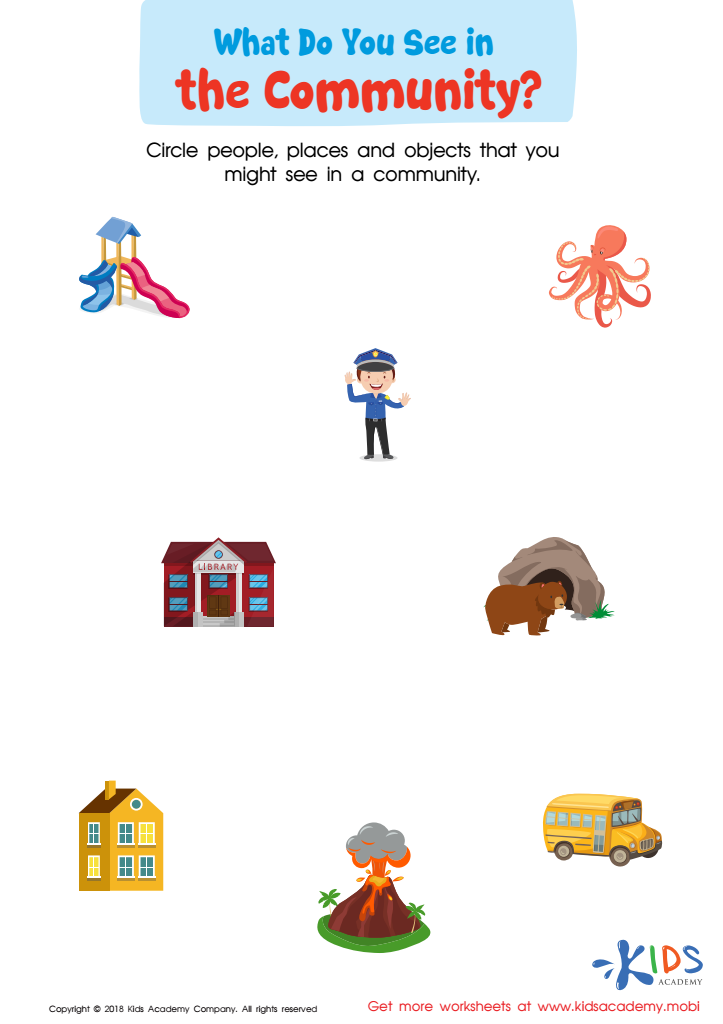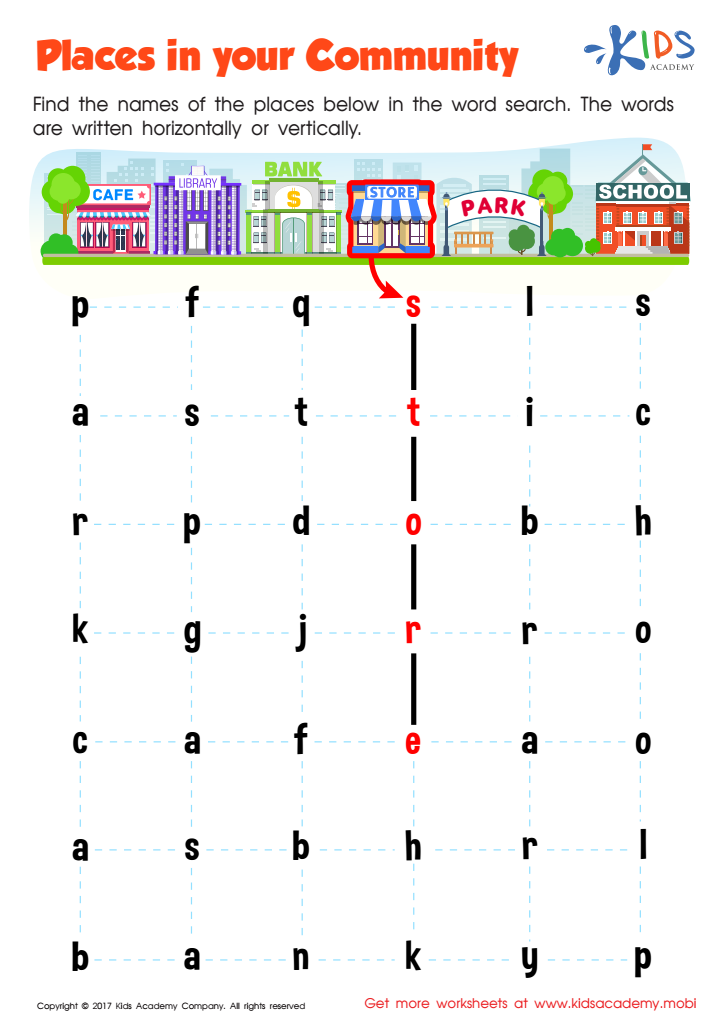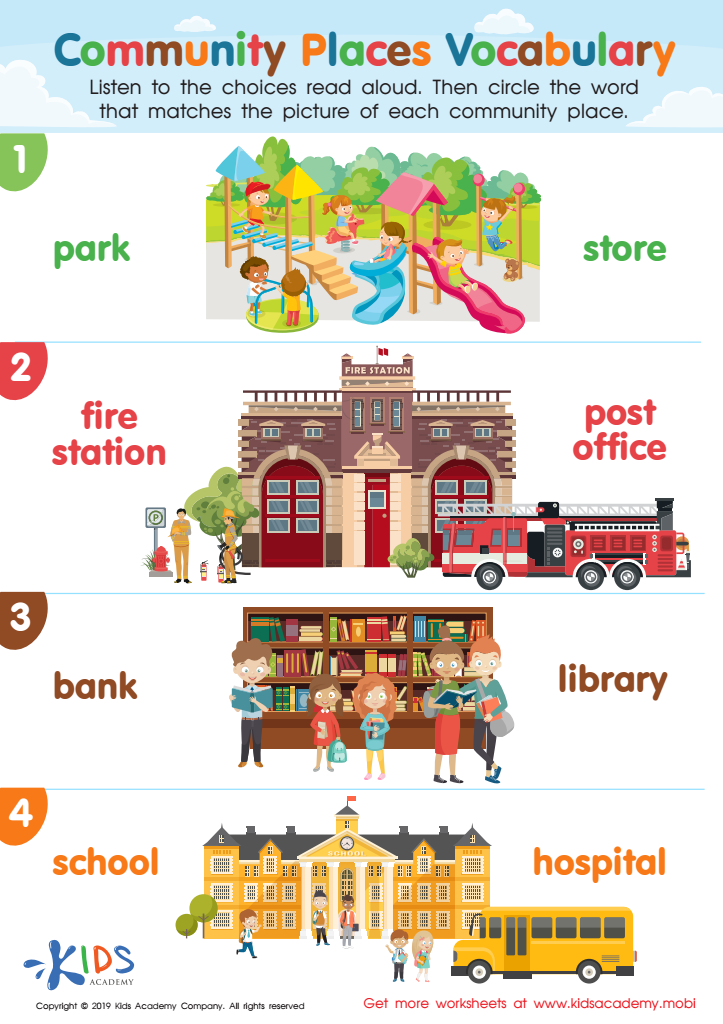Community awareness Normal Social Studies Worksheets for Ages 3-8
3 filtered results
-
From - To
Discover our engaging Community Awareness Normal Social Studies Worksheets designed specifically for children ages 3-8. These interactive and age-appropriate worksheets help young learners explore their neighborhoods, understand social roles, and foster a sense of belonging within their communities. Featuring vibrant illustrations and simple activities, the worksheets encourage creativity and critical thinking while developing essential social skills. Ideal for both classroom and at-home learning, these resources promote awareness of diverse cultures and community dynamics. Help your child build a strong foundation in social studies with our fun and informative worksheets that inspire curiosity and a sense of responsibility in their community.


What Do You See in the Community Worksheet


Places in Your Community Worksheet


Community Places Vocabulary Worksheet
Parents and teachers should care about community awareness in social studies for children ages 3-8 because it lays the foundation for civic engagement and social responsibility. At this developmental stage, children are naturally curious about the world around them. Introducing them to community concepts helps cultivate a sense of belonging and connection to their environment.
Learning about their community teaches young children important skills such as empathy, communication, and critical thinking. They begin to understand diverse cultures, ideas, and people, which fosters an inclusive mindset. Discussions about community roles—like teachers, firefighters, and doctors—enable children to recognize the importance of teamwork and collaboration within society.
Moreover, understanding community dynamics equips children to identify and address local issues, fostering future generations of informed and engaged citizens. Activities that involve exploring their neighborhoods or community service can spark interest and responsibility, guiding children toward becoming proactive participants in their world.
Finally, enhancing community awareness in early education strengthens family and community bonds, encouraging collaborative efforts to create supportive environments for children. This engagement ultimately cultivates a sense of identity and purpose, which is crucial for their overall development.

 Assign to My Students
Assign to My Students
















